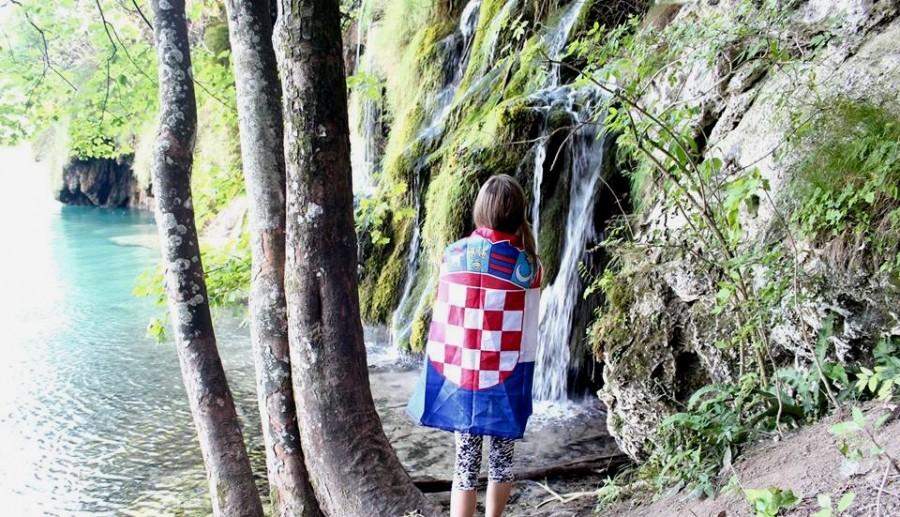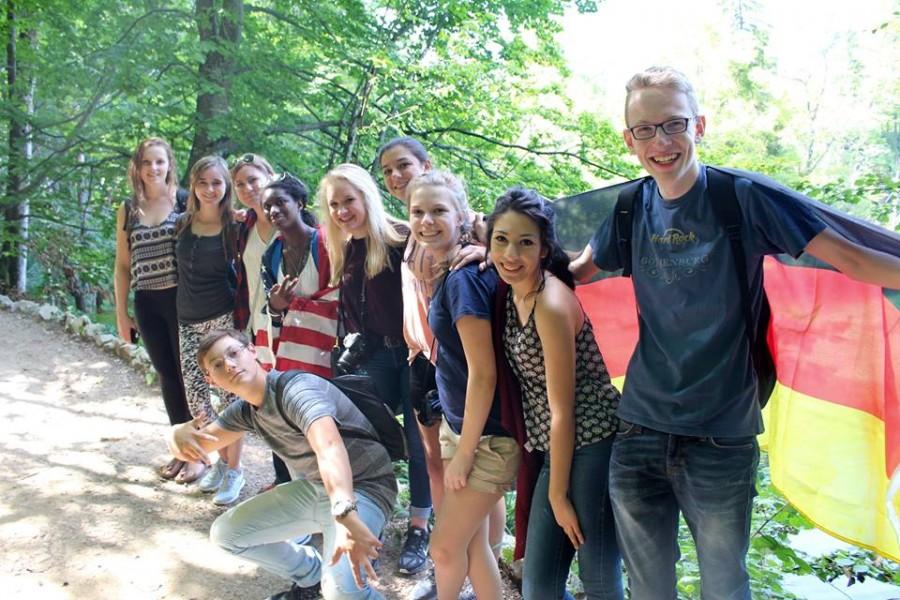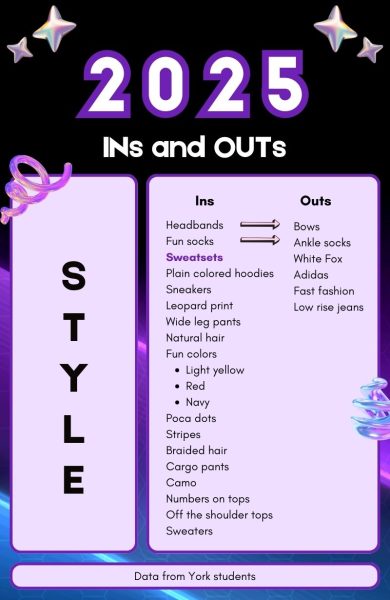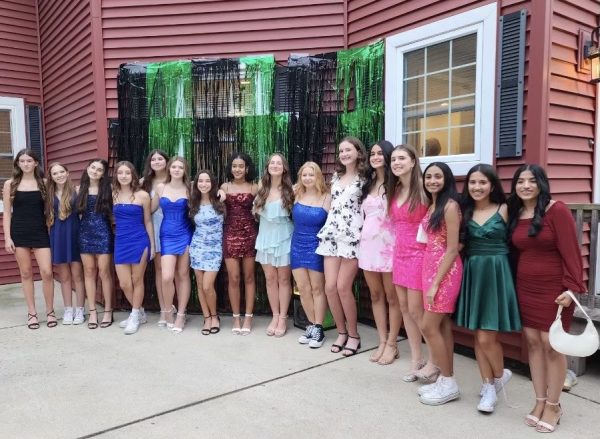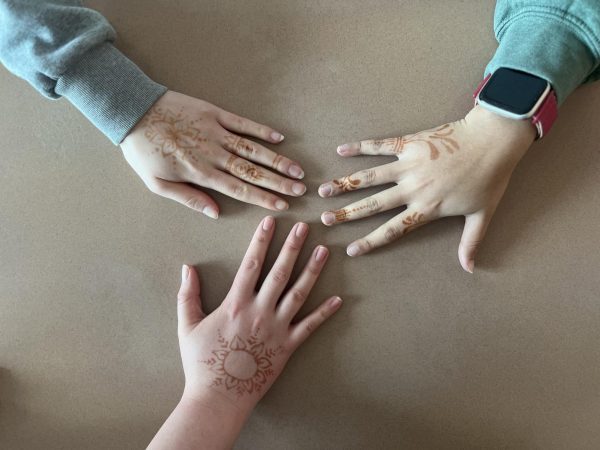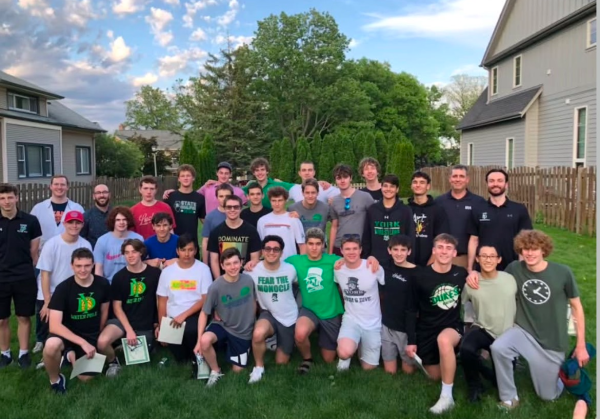From Elmhurst to Croatia
Every year, the Elmhurst Rotary sends young adults to different countries for an exchange. Not only does the Rotary send young adults internationally, but they also receive young adults from other countries. Charlie Laliberte is the Elmhurst Rotary Youth Exchange Officer and organizes the many exchanges that take place in our community.
“Though the Elmhurst Rotary has been organizing full year exchanges for perhaps 20 years, I have been doing the full year exchanges for about 5 years,” Laliberte said.
Last year, York welcomed Robin Le Bourhis from France for a one year exchange. This year, there are students at York and in surrounding communities that are also on exchanges through various Rotaries.
“In the past, full-year exchanges students have gone to Mexico, Thailand, Indonesia (2 students) and now Croatia,” Laliberte said. “And this year we have a student from Denmark and one from Monie Lund spending a year at York. Other places Rotary exchange students visiting in the western suburbs are from Chile, Venezuela, Nigeria, Brazil, Korea, Spain and Indonesia.”
The process of choosing where to do your exchange is long and tedious. There are many countries that are possible to travel to, but some have requirements. There are countries that due to their culture and everyday life, do not accept vegans or vegetarians into their programs. In the end, a large number of students get the country they desired to go to and end up having a life-changing exchange.
This year, senior Annalise Metcalf traveled for her exchange almost 5,000 miles away to Croatia. Croatia is a country located in the far east of Europe, bordering the Adriatic Sea.
“The first language is Croatian, which is basically the same language as the other countries that were once in Yugoslavia and the next two most popular languages are German and Italian,” Metcalf said.
Croatia was Metcalf’s number one choice of countries to visit for her exchange. She described it as an “amazing little gem” that not many people seem to be familiar with. Metcalf is staying in a town similar to Elmhurst in that it is a suburb outside of a bigger city.
“My town, Velika Gorica, is 20-30 minutes away from the country’s capital, Zagreb,” Metcalf said. “I often go there because it’s basically the hub of activity and Velika Gorica, although very nice, it’s like Elmhurst where most of the fun things are in Chicago.”
School is much different in Croatia than in America. As we all know, at York we go to school every day from 7:40 am to 3:06 pm. However, this is not the same whatsoever in Croatia. The times, activities, classes, and countless other aspects of the school life are very different.
“The school has 2 shifts: a morning shift (7:30am-1:30pm) and an afternoon shift (1:30pm-7:30pm),” Metcalf said. “These shifts switch every week, so like, last week I had afternoon school but this week I have morning.”
At York, we have a little under 3,000 students. York itself has three floors and a huge number of hallways and classrooms. Metcalf’s school in Croatia is much, much smaller.
“Size-wise, the school is smaller than York by far. There is 3 main hallways, each for one of the schools. So, my whole school is basically the upstairs hallway that consists of 10 classrooms,” Metcalf said.
In addition to the many classes offered at York, we have countless sports and clubs that are offered as well. Metcalf’s school in Croatia, however, does not offer sports or clubs through the school. So outside of school, Metcalf does yoga and has a tutor for Croatian.
In Elmhurst, Metcalf lives with her mother and brother. In Croatia, Metcalf was placed with a host family. She lives with her host sister, Mia, and her host parents. Over the past two months, Metcalf has grown to love her host family.
“The older one, Mia, is the sister I never had,” Metcalf said. “She lets me borrow her clothes, try out my crazy braids on her and even takes me to McDonalds at random times.”
Metcalf’s host father is especially amazing; he lives every day with Multiple Sclerosis, and can no longer move below his neck.
“He still writes for the national newspaper with the help of my host mom and sister and browses on the computer with voice commands,” Metcalf said. “My host dad doesn’t speak English, but he is the most patient man I have ever met.”
It seems like the general stereotype for Europeans is that they are extremely laid back, eat long meals, and overall have a slow paced life. Croatians seem to uphold these ideas.
“Croatians love to go to coffee and sit for hours,” Metcalf said. “Not one or two hours, more like four or five and sip on just one coffee. It was super annoying at first for a fast-paced American, but I learned to let my inner-Croatian out and just relax for a ridiculous amount of time.”
On the other hand, Metcalf described how the friends she has made had their preconceived notions of what America is like. Metcalf said that people ask her questions like: “Does everyone in America have a gun?” or “What do you guys think of Donald Trump?”
“I have found that Europeans think that Americans are very loud (which, let’s be honest, we are), fat people with guns and Texas accents and we dress horribly,” Metcalf said. “The whole knee-high socks with Nike Slides or Birkenstocks is seen as super tacky while Texas Tuxedos and full tracksuits are a sign of wealth here.”
Although Croatians seem to think a lot of different things about Americans, negative or positive, Metcalf knows one thing for sure: “Croatians are really loud and blunt people, I love it.”
Metcalf’s exchange seems to be a great experience. But like any long venture away from home, there are difficulties that come with it. Metcalf has not skyped her family yet or voice called them since she arrived in Croatia; she thinks talking to them may make her homesick. She does, however, long for her friends.
“I do miss my friends- shout out to Maurizio and Marissa- a bit because I don’t have that closeness with my friends here that I do back home,” Metcalf said.
On a less serious note, there are some material things that Metcalf misses as well. Doritos, chocolate chips, Jolly Ranchers, Dunkin’ Donuts, Chipotle, Buffalo Wild Wings, Eos, seedless grapes, packs of mechanical pencils, and Cheez-Its are among the laundry list of items that she misses. So, you better cherish your mechanical pencils while you can.
“When I return I am sure I will miss things that are only available here,” Metcalf said.
Croatia is a country unique to so many things. Their thousands of bakeries, miles of beautiful coastline, and diverse population make up only a small number of Croatian wonders.
Going on an international exchange changes one’s life. It makes one look at the world from a new perspective, a fascinating perspective.
“Long-term exchange puts you in the awkwardly hard situation where either you stay close minded or you openly accept and adapt to the new culture,” Metcalf said. “Stay close minded and you will likely end up depressed, homesick and at risk to go home early. However, opening your mind to the thought that your culture isn’t better than anyone else’s culture, it’s just different, and you then allow yourself a world of unexplainable possibilities than you can’t help but to smile at.”
Both Metcalf and Laliberte agreed on the fact that going internationally for an extended period of time is a valuable experience.
“I think that the more people from around the world learn to appreciate each other’s cultures, the better world this can be for all of us,” Laliberte said.
It is crazy how two months can change the way someone thinks so much as it has to Metcalf. Her outlook on the world seems to be shifting into something new and original, and although so unfamiliar to her, she cannot wait for what is to come in her future.
“I know that by the end of this year I will have obtained a completely new and different outlook on life that I would love to share with others,” said Metcalf.
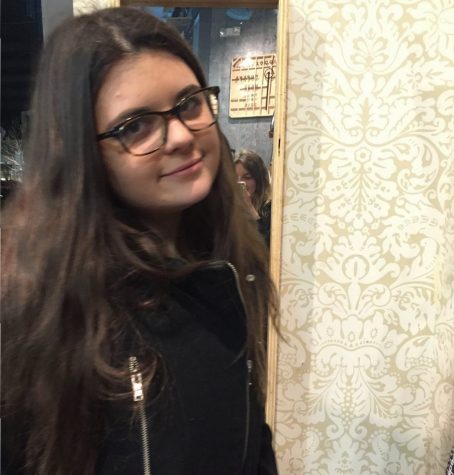
Kylie Travers is a senior at York. This year, she is Co-Editor-In-Chief of the York-hi. Other than her extremely passionate love of writing and reading...


